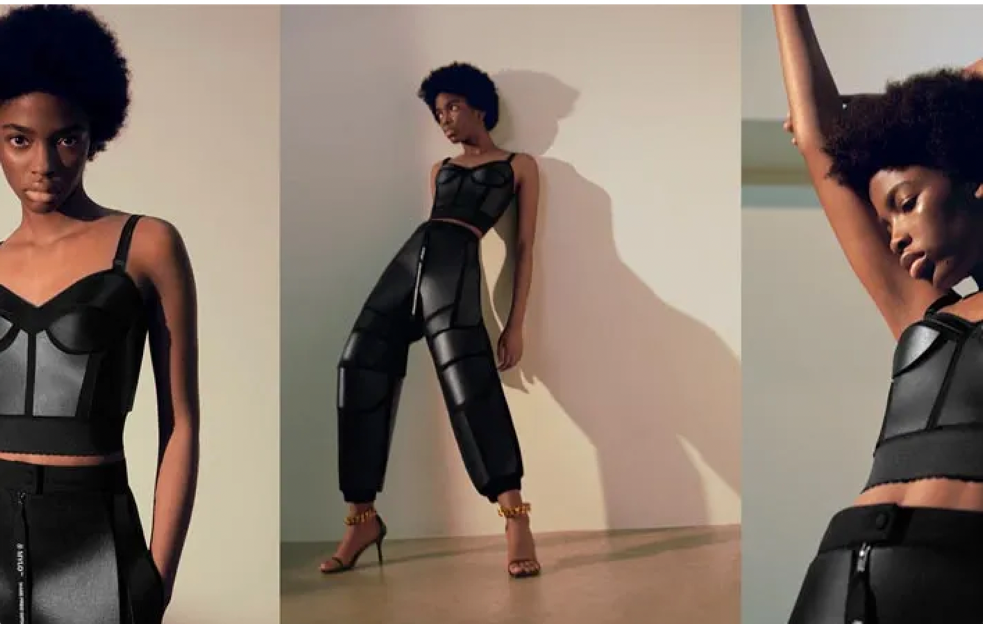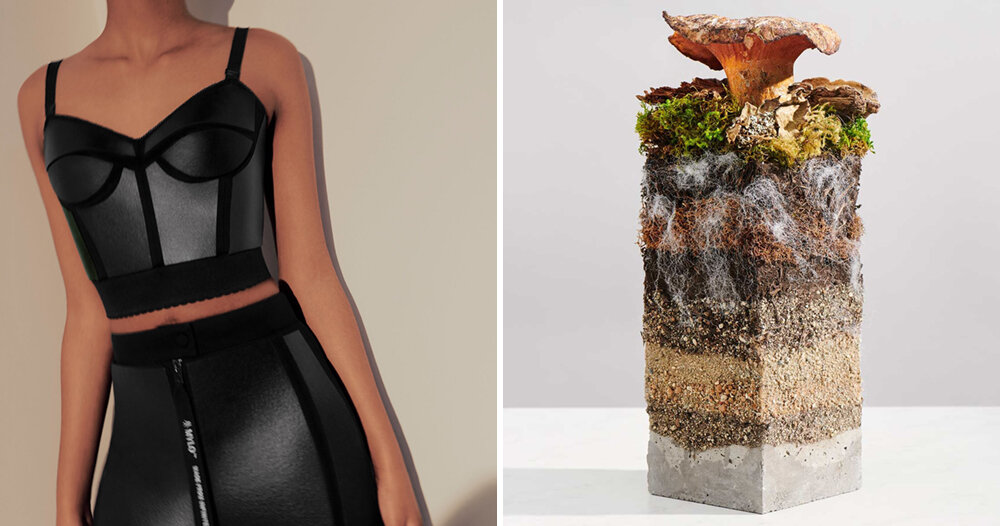Stella McCartney is the world’s first luxury brand to launch apparel using BoltThreads’ “Mylo™”: a vegan, sustainable, animal-free leather alternative made using mycelium, fungi’s infinitely self-renewing underground root system… Perhaps NASA is drawing inspiration from McCartney’s fashion line?
Combining in-depth science and haute couture design, the garments launched by Stella McCartney showcase this next-generation material’s fullest potential and paves the way for numerous future commercial offerings.
In the midst of the Covid pandemic back in October 2020, Stella McCartney explored the use of Mylo™ material, providing critical feedback and ultimately becoming a part of the exclusive consortium of brands working alongside the mycelium BoldThreads team.
The earliest two garments announced by McCartney include a black strapless top and utility pants: both unique, cruelty-free and effortlessly sensual. The pieces have been meticulously handcrafted in McCartney’s London workshop using panels of mycelium-based material, which are then laid atop recycled nylon. While none of these pieces are currently for sale, McCartney will eventually incorporate Mylo™️ into future seasonal offerings.
Inspired by her McCartney A to Z Manifesto and her 20th anniversary in 2021, McCartney is now more than ever committed to bringing full environmental consciousness to the fashion industry, having refused to make use of leather, feathers, fur or skins since initializing her business.
McCartney and BoltThreads have been partners in sustainable innovation since 2017, the Stella McCartney luxury brand taking part of the Mylo™️ journey since its grand debut. In fact, the first product ever created using Mylo™️ products was a prototype of Stella’s iconic Falabella bag.
This state-of-the-art design process is non-petroleum-based, stipulating the remainder of more underground fossil fuels and less spilled plastic. Consequently, Mylo™️ is fabricated to have an extremely minimal environmental impact and takes just several days, rather than years, to fabricate.
This is unlike the process of raising cattle which, according to the High Council for Climate, takes approximately 17,000 liters of water to produce a single kilogram of leather. Currently, the agriculture sector accounts for 19% of total greenhouse gas (GHG emissions), which break down as follows: livestock (48%); crops (41%); tractors, machinery and agricultural boilers (11%). Not only this, but animal agriculture also leads to the destruction of vital ecosystems, with 70 to 80% of Amazon’s deforested area now being used for cattle pasture.
Creating new, high-quality biomaterials is a major technological challenge and a huge opportunity for both people and the planet. “I am extremely grateful and honored to partner with Stella and her team, and for her long term partnership and support in introducing Mylo™️ to the world,” says Dan Widmaier, CEO and Founder of BoltThreads.
The material used in her first two garments not only represent a huge step forward for the aesthetics of biomaterials, but also marks the rollout initiation of the ready-to-use Mylo™️ product. This is a tangible progress towards an eventual large-scale production where Mylo™️ has a significantly positive impact on our planet.



 image courtesy of dezeen fashion
image courtesy of dezeen fashion